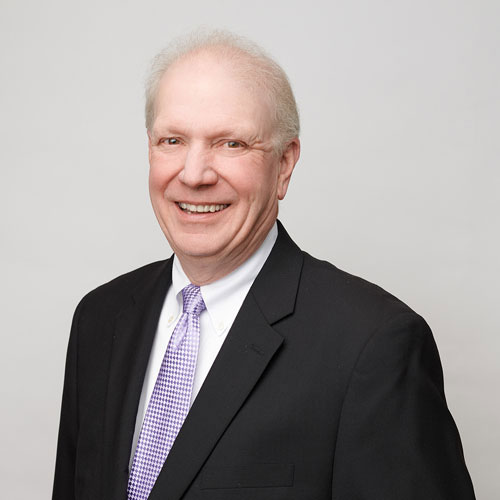TTAB APPEAL AT USDC – WIN OR LOSE – YOU PAY THE USPTO COSTS
On April 23, 2015, the Fourth Circuit Court of Appeals ruled (2-1) in the case ofShammas v. Focarino, that, win or lose, a party who files a U.S. district court appeal from a decision of the Trademark Trial and Appeal Board (TTAB), must pay the United States Patent and Trademark Office (USPTO)’s costs associated with defending the appeal.
The Lanham Act provides that a dissatisfied trademark applicant may seek review of an adverse ruling from the TTAB on his trademark application either by appealing the ruling to the Court of Appeals for the Federal Circuit, or by commencing a de novo action in a federal district court.
If the applicant elects to proceed in a district court and no adverse party opposed the application before the USPTO, the applicant must name the director of the USPTO as a defendant and pay “all the expenses of the proceeding,” whether he succeeds in the action or not, unless the expenses are unreasonable.
In 2009, Mr. Milo Shammas filed a federal trademark application for the mark “PROBIOTIC” for use in connection with fertilizer products manufactured by his company, Dr. Earth, Inc. In an ex parte proceeding, a trademark examining attorney for the USPTO denied his application on the ground that the term was generic and descriptive. The TTAB affirmed.
After losing his case at the TTAB, Mr. Shammas elected to commence a de novoreview action in the U.S. District Court for the Eastern District of Virginia.
The district court granted the USPTO’s motion for summary judgment by order dated October 15, 2013, holding that Mr. Shammas had failed to cast doubt on the finding that “PROBIOTIC” was a generic term.
At the end of the district court proceeding, the director of the USPTO sought “all the expenses of the proceeding” from Mr. Shammas, including salary expenses of the USPTO attorneys and a paralegal who were required to defend the director.
The costs as outlined by the USPTO included the prorated salaries of two attorneys, in the amount of $32,836.27, and one paralegal, in the amount of $3,090.32. The USPTO calculated these sums by dividing the employees’ annual salaries by 2,000 hours and multiplying the results by the number of hours expended by the employees in defending the action, a total of 518 hours in this case. The PTO also claimed $393.90 for photocopying expenses.
The district court granted the director’s request and ordered Mr. Shammas to pay the USPTO a total of $36,320.49 in expenses.
On appeal, Mr. Shammas argued that the district court erred in “shifting” the USPTO’s attorney’s fees to him, contrary to the “American Rule” under which each party bears his own attorney’s fees, because the governing statute does not expressly provide for the shifting of attorney’s fees.
The Fourth Circuit rejected Mr. Shammas’ arguments and affirmed the lower court ruling, concluding that the imposition of all expenses on a plaintiff in an ex parte proceeding, regardless of whether he wins or loses, does not constitute fee-shifting that implicates the American Rule but rather an unconditional compensatory charge imposed on a dissatisfied applicant who elects to engage the USPTO in a district court proceeding.
Section 1071(b)(3) provides in relevant part, “In any case where there is no adverse party, . . . all the expenses of the proceeding shall be paid by the party bringing the case, whether the final decision is in favor of such party or not.”
The appellate court’s interpretation of the statute (§ 1071(b)(3)) found that it imposes a unilateral, compensatory fee, including attorney’s fees, on every ex parte applicant who elects to engage the resources of the USPTO when pursuing a de novo action in the district court, whether the applicant wins or loses.
De novo civil actions under § 1071(b)(1) clearly include a more fulsome and expensive procedure compared to an appeal to the Federal Circuit. Since the statute requires an ex parte applicant to name the USPTO as a party defendant to such a proceeding, the USPTO is required to expend substantially greater time and effort and incur substantially greater expense than it would otherwise in an appeal to the Federal Circuit.
By requiring the dissatisfied applicant to pay “all the expenses of the proceeding,” whether the applicant wins or loses, Congress obviously intended to reduce the financial burden on the USPTO in defending such a proceeding.
In light of this purpose, it makes good sense to construe “expenses” to include attorney’s fees and paralegals fees because the time that USPTO employees spend in defending the director will constitute the majority of the USPTO’s expenses in such a proceeding — in this case, over 98 percent of its expenses.
Of course, if the dissatisfied applicant does not wish to pay the expenses of a de novo civil action, he may appeal the adverse decision of the USPTO to the Federal Circuit.
Judge King filed a dissenting opinion, based on his reading of § 1071(b)(3), wherein it makes no reference to attorney fees awards and does not reflect a Congressional intention to authorize such awards.
In Judge King’s opinion, it is because the American Rule applies and the USPTO should bear its own attorney’s fees.
Footnote 4 of the dissent is interesting:
Shammas contends here — and the USPTO does not dispute — that, prior to 2013, the USPTO had never sought an attorney’s fee award under the patent and trademark laws. If such awards had been generally available, the USPTO’s silence in the face of such authority is more than passing strange.
Posted: April 29, 2015



